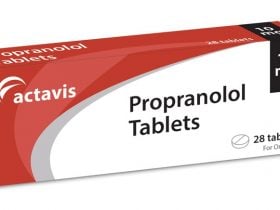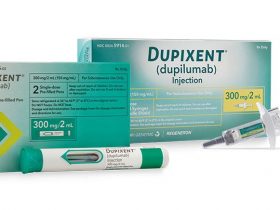Xgeva, popularly known as denosumab, is a brand name for a type of medication. This medication is used subcutaneously as an injection under your skin. The injection can only be given in the clinic or the doctor’s office. It is used to help prevent and treat several types of bone issues.
Xgeva is a type of monoclonal antibody, which means that the drug is created from part of living organisms. The drug is sterile, preservative-free, clear, colorless to pale yellow solution.
Each single-dose vial of Xgeva contains denosumab (120mg), acetate (18mM), polysorbate 20 (0.01%), sorbitol (4.6%), Water for Injection (USP), and sodium hydroxide to a pH of 5.2.
There’re the classification for drug, such as biosimilar drug, generic drug, and the brand-name drugs. A biosimilar is a drug that’s similar to a brand-name medication. A generic drug, on the other hand, is an exact copy of a brand-name medication. Biosimilars from the name are based on biologic drugs, which means they are made from parts of living organisms. Generics are based on regular drugs, which are made from chemicals. Biosimilars and generics tend to cost less than brand-name drugs. Xgeva is available only as a brand name medication and is not currently available in biosimilar form.
Uses of Xgeva

Xgeva has been approved for uses by the Food and Drug Administration (FDA). Some cases that require the uses of xgeva include:
- Help prevent broken bones in people with bone metastasis caused by solid tumors. Bone metastasis occurs when cancer spreads to your bones. And a solid tumor is a mass of tissue that forms when cells grow too quickly. It’s solid because it usually doesn’t contain cyst or liquid.
- Help prevent broken bones or any skeletal system related event in people with multiple myeloma. Multiple myeloma is a form of cancer that affects your bone marrow (the tissue in your bones) and damage the bone tissue.
- Xgeva helps treat against giant cell tumors that can not be completely removed by surgery or in a case where surgery would be too dangerous. A giant cell tumor is a very rare type of bone tumor that is not cancerous.
- Xgeva is also used for the treatment of hypercalcemia of malignancy refractory to bisphosphonate therapy. Hypercalcemia is a condition in which there is too much calcium in your bone. It is usually used alongside biphosphate, a type of drug that helps prevent the loss of bone mass.
Basically, Xgeva is mostly recommended for majorly three cases, they include:
- Giant cell tumor of bone
- Hypercalcemia of malignancy
- Multiple myeloma and bone metastasis from solid tumors
Xgeva has been proven to be very efficient. Three clinical trials were conducted among people with bone metastasis from solid tumors. The trial was done using two medicines, Xgeva and another drug called zoledronic acid (Zometa). [1] Results showed that Xgeva helped prevent people from getting fractures for 27.7 months while the zoledronic acid treatment helped prevent for 19.5 months. Therefore, Xgeva helped delay the time that people got fracture way longer than zoledronic acid could.













